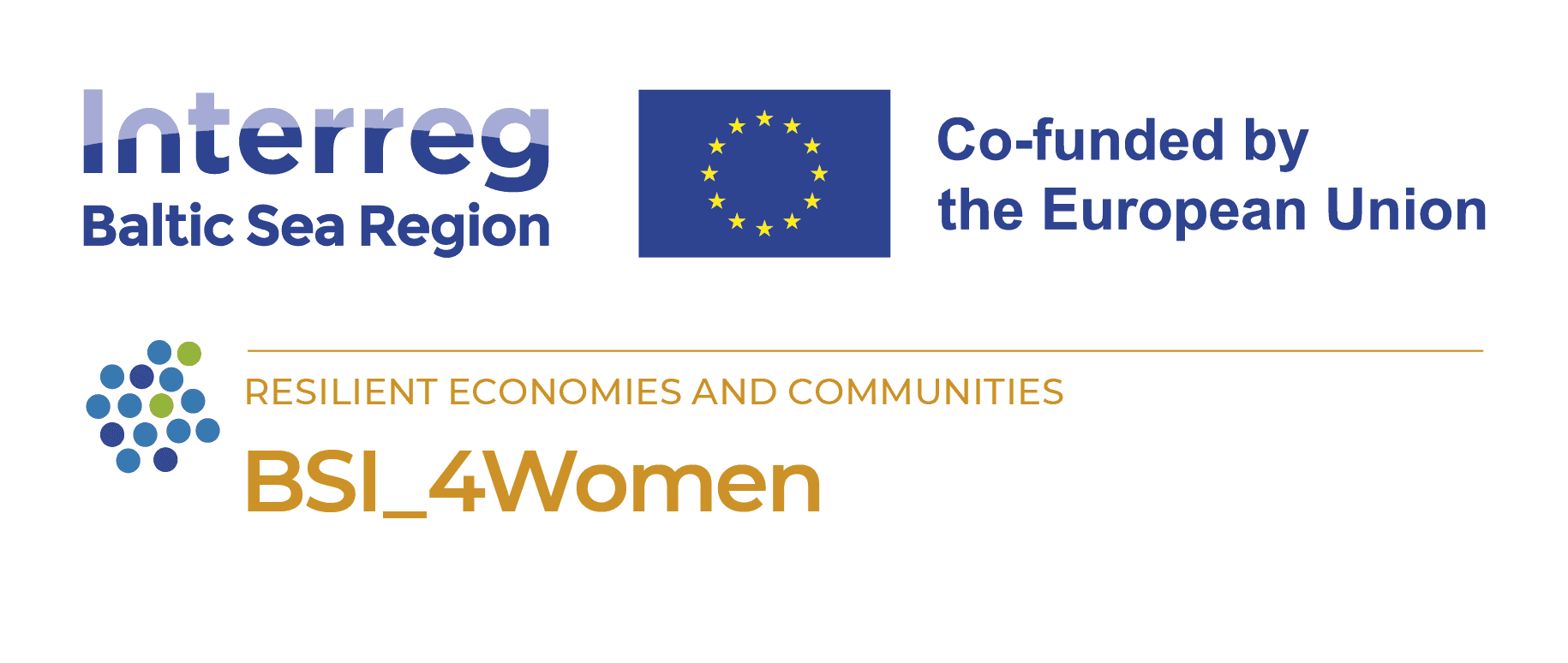
The Situation of Refugee Women in Estonia
03 April 2024
The Resilience and Potential of Refugee Women in Estonia
A Closer Look at Opportunities and Challenges
Estonia, like its neighboring countries in the Baltic Sea region, has become a new home for many refugee women escaping war and conflict. The BSI_4Women project, with a focus on empowering these women through entrepreneurship, reveals both challenges and unprecedented opportunities. Through a comprehensive survey, the project highlights the aspirations, motivations, and hurdles that refugee women in Estonia encounter on their journey towards self-reliance and economic empowerment.
The Survey’s Findings in Estonia
A notable finding from the survey is that a significant portion of refugee women in Estonia, 26 out of 175 respondents, are actively considering entrepreneurship as a viable path to rebuild their lives. These women are not just looking for jobs; they are aspiring to become job creators. With 23 expressing a willingness to start a business, the entrepreneurial spirit among them is unmistakably strong.
The survey sheds light on various facets of their entrepreneurial journey – from their motivations and challenges to their readiness to take risks and adapt to new environments. It is heartening to see that a majority of these women are not just ready but eager to face new challenges, with 12 in Estonia confident about their success in establishing their businesses.
Motivations and Challenges
For many, the drive to start a business stems from a desire for financial independence, professional growth, and a chance to contribute positively to their new community. However, the road to entrepreneurship is fraught with obstacles. Access to funding, lack of local market knowledge, and regulatory hurdles are just the tip of the iceberg. Moreover, balancing work and family commitments adds another layer of complexity to their entrepreneurial journey.
Despite these challenges, refugee women in Estonia are determined to move forward. The survey highlights their willingness to invest time and effort into their ventures, with a significant number affirming their commitment to their business ideas.
A Path Forward
The findings from Estonia, as part of the BSI_4Women project, underscore the need for targeted support programs that can help these aspiring entrepreneurs navigate the complexities of starting and running a business. This includes access to financial resources, mentorship, and training on local business regulations and market dynamics.
Moreover, fostering a supportive ecosystem that encourages networking and collaboration can significantly enhance their chances of success. By tapping into their potential, Estonia not only aids in the economic integration of refugee women but also enriches its entrepreneurial landscape with diverse perspectives and innovations.
The typical refugee woman living in Estonia
The typical refugee woman living in Estonia is a resilient and adaptable individual who has likely fled conflict or persecution in search of safety and stability for herself and her family. Her professional background is diverse, with skills and experiences that may include photography, project management, hospitality, and education. This range of expertise suggests she has strong potential to contribute to the Estonian economy and society. Despite the challenge of a language barrier, particularly with Estonian, she benefits from the widespread use of Russian in Estonia, which she is likely proficient in. This linguistic advantage facilitates her access to healthcare services, education for her children, and adult training programs, all of which are available in Russian. It also aids her integration into the community, as Russian is commonly used in the service sector and shops. She is proactive in enhancing her business knowledge and skills, often participating in entrepreneurship courses that may be funded through the Unemployment Insurance Fund. There is a clear need for specialized language courses and expert advice on obtaining business funding, as indicated by survey results showing strong demand among refugee women for these services.
In terms of rights and access to services, she enjoys the same entitlements as Estonian citizens, ensuring that any systemic issues she encounters are not unique to her refugee status. The presence of Ukrainian communities and functional NGOs in Estonia provides her with a support network that assists with integration and offers a sense of belonging.
Overall, the typical refugee woman in Estonia is well-positioned to overcome integration challenges, thanks in part to her Russian language skills and the existing support structures within the community. Her diverse skill set and entrepreneurial aspirations, coupled with equal rights and targeted training programs, enable her to potentially integrate successfully into Estonian society.
Conclusion
The entrepreneurial aspirations of refugee women in Estonia reflect a broader trend across the Baltic Sea region. Their journey from seeking refuge to seeking opportunities for self-employment is a testament to their resilience and determination. As Estonia and its neighbors look to support these women, the focus must be on unlocking their potential, not just as a means to economic independence but as a valuable contribution to the region’s socio-economic fabric.
The BSI_4Women project’s insights into the situation of refugee women in Estonia open up conversations on how best to support their entrepreneurial spirit. It’s a journey that benefits not just the women themselves but the broader community, creating a more inclusive and diverse entrepreneurial ecosystem.





